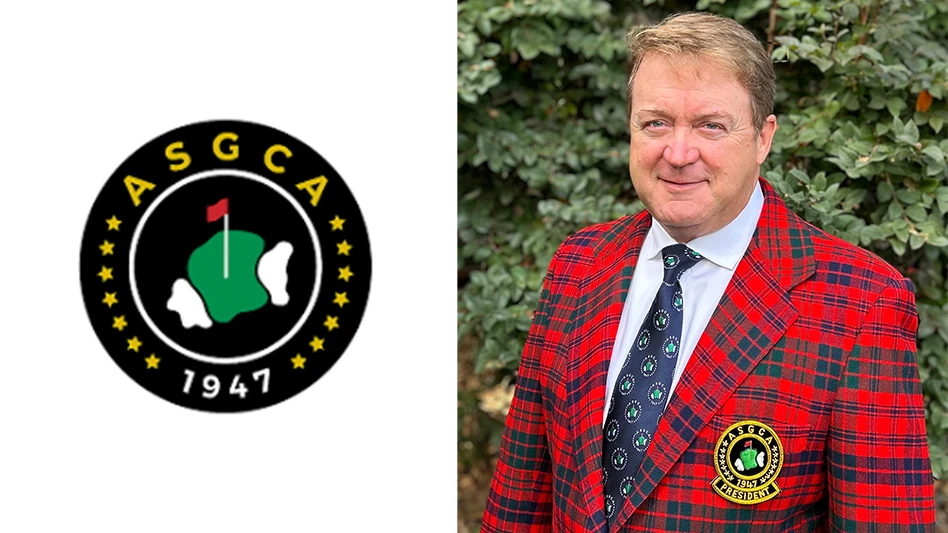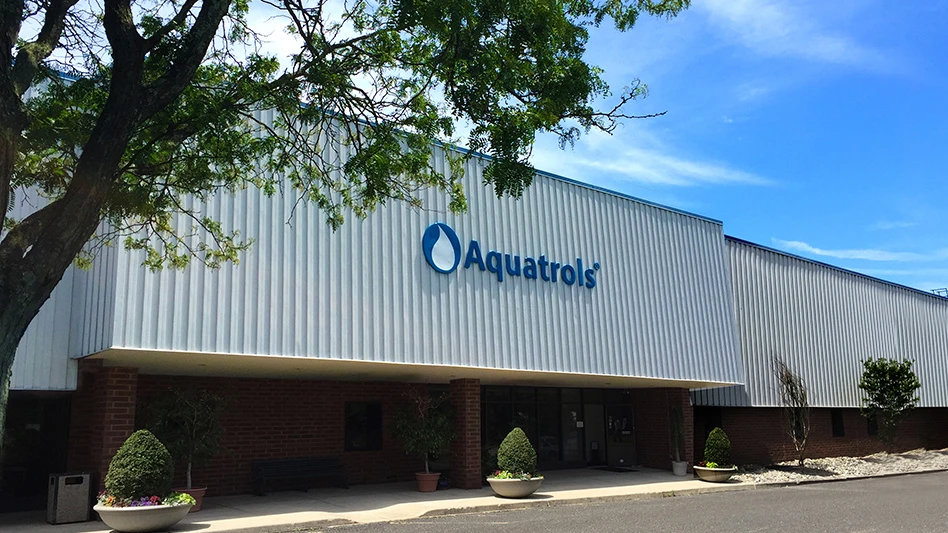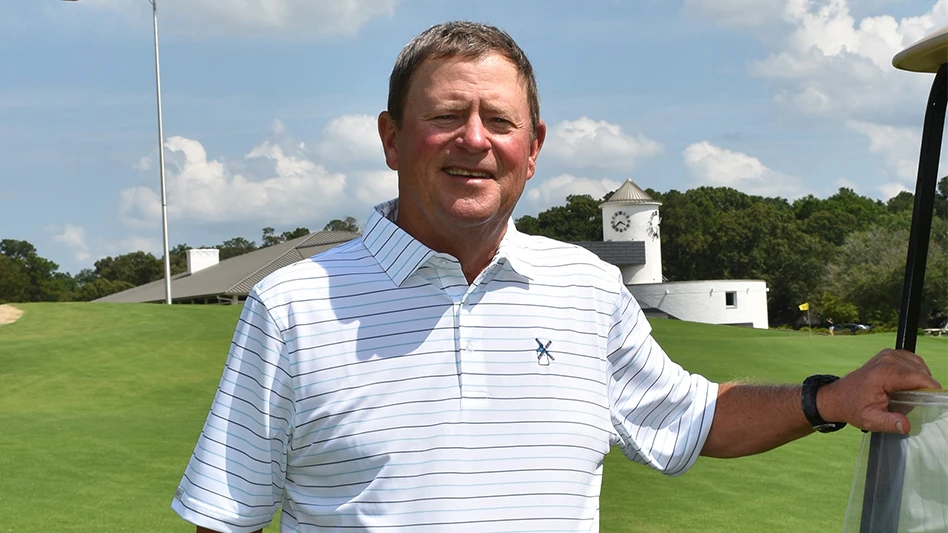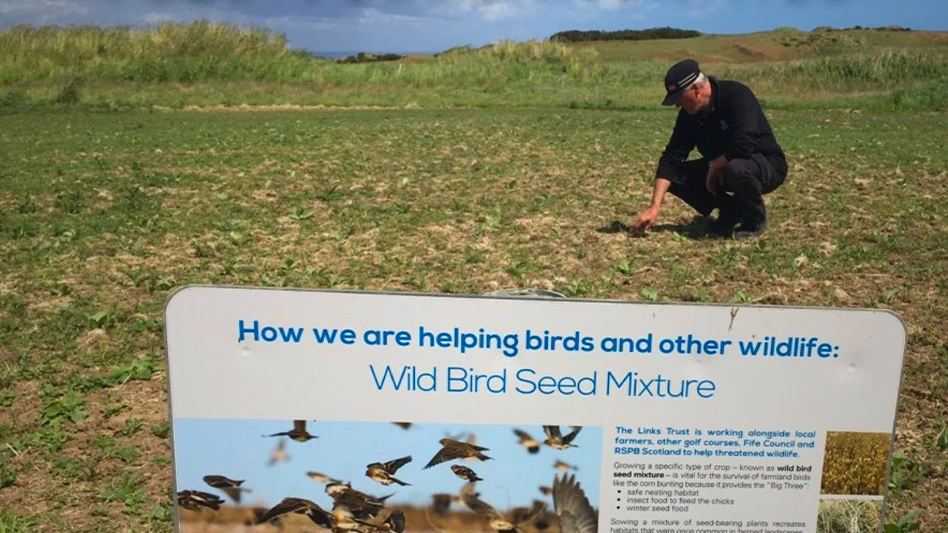Is the golf course superintendent profession taken for granted? The major TV networks seem to think so. After attending the practice rounds of The Masters and watching most of the tournament on the tube, it’s clear superintendents don’t get the recognition they deserve. It seems superintendents only get recognition when bad weather adversely affects a course. The business side of the industry – owners, builders, architects and general managers – knows and respects superintendents, but that knowledge and respect needs to extend to the public.
Superintendents should be recognized for the work they do – and not just in trade magazines, daily newspapers and local media, where most of that occurs. They deserve to be recognized on national TV when major golf tournaments are broadcast because, in golf, the playing surface is more integral to the game than any other major sport. The golf course is the challenge to the player, not the opposing players, as in other sports. Superintendents are an important part of the game because they’re responsible for the conditions of the courses, which receive attention on TV.
When the Masters, the U.S. Open and the PGA Championship are televised, millions of people see the beauty of Augusta, Pinehurst and Baltusrol. Fans see these courses on TV and take those higher expectations of course conditioning back to their courses. That’s good and bad. It’s good because it raises expectations, but bad because they can misinterpret expectations beyond what’s reasonable. The missing link between the good and bad is knowing the cost and time it takes to get courses like that in shape for a tournament.
There are many viewers who are more interested in Tiger’s caddy racing cars in his spare time than how a course is prepared for a major, but I’m also sure there are many golf fans who wonder how these courses become so picture perfect. I walked among dozens of spectators at Augusta National who commented about how wonderful the course looked and asked questions about how the “greenskeepers” were able to get the course to look the way it did.
Wouldn’t it be nice if NBC did a piece about Paul Jett and his staff and how they changed and prepped the course for the U.S. Open? And just because Pinehurst is hosting the U.S. Open, that doesn’t mean a story about superintendents has to focus solely on Jett. The story could focus on any number of superintendents and aspects of golf course maintenance.
I called NBC and talked to the assistant of the producer of the U.S. Open and asked her if they planned on airing any bit about superintendents or course maintenance. She didn’t know and said she would get back to me. I haven’t heard from her yet.
Major networks and some viewers might consider these types of stories boring, and the networks might have a hard time finding advertising support. But there doesn’t need to be an hour-long program about this – just a five to 10 minute piece would suffice.
Granted, the GCSAA has made considerable efforts with various television networks pitching story ideas about the work of their members. And the Golf Channel has produced some shows about this in recent years. There also have been some major championship preview shows that highlight course preparation. Apparently, the recognition superintendents receive has improved during the past 10 years, but it could improve even more.
Yet some superintendents are fine with the coverage they receive. Jim Nicol, CGCS, at Hazeltine National Golf Club in Chaska, Minn., hosted the PGA Championship in 2002. He thinks course maintenance is of little importance in the scope of broadcasting a golf tournament nationally and that superintendents get plenty of coverage from local media.
“There are a lot of people involved with a golf tournament who don’t get singled out,” he says. “We do well just being mentioned (in the national media), and I don’t think superintendents should ask for anything more.”
I disagree. But if short TV pieces about superintendents were aired during a major, Nicol says one thing needs to come across: golf course maintenance is all about money. Another subject matter could be the fallacies of pesticide use on golf courses.
Superintendents deserve more time in the spotlight, and major networks should take part in that. However, that might mean the industry has to spend more time and money to produce these TV bits to present to the networks. GCN
Superintendents should be recognized for the work they do – and not just in trade magazines, daily newspapers and local media, where most of that occurs. They deserve to be recognized on national TV when major golf tournaments are broadcast because, in golf, the playing surface is more integral to the game than any other major sport. The golf course is the challenge to the player, not the opposing players, as in other sports. Superintendents are an important part of the game because they’re responsible for the conditions of the courses, which receive attention on TV.
When the Masters, the U.S. Open and the PGA Championship are televised, millions of people see the beauty of Augusta, Pinehurst and Baltusrol. Fans see these courses on TV and take those higher expectations of course conditioning back to their courses. That’s good and bad. It’s good because it raises expectations, but bad because they can misinterpret expectations beyond what’s reasonable. The missing link between the good and bad is knowing the cost and time it takes to get courses like that in shape for a tournament.
There are many viewers who are more interested in Tiger’s caddy racing cars in his spare time than how a course is prepared for a major, but I’m also sure there are many golf fans who wonder how these courses become so picture perfect. I walked among dozens of spectators at Augusta National who commented about how wonderful the course looked and asked questions about how the “greenskeepers” were able to get the course to look the way it did.
Wouldn’t it be nice if NBC did a piece about Paul Jett and his staff and how they changed and prepped the course for the U.S. Open? And just because Pinehurst is hosting the U.S. Open, that doesn’t mean a story about superintendents has to focus solely on Jett. The story could focus on any number of superintendents and aspects of golf course maintenance.
I called NBC and talked to the assistant of the producer of the U.S. Open and asked her if they planned on airing any bit about superintendents or course maintenance. She didn’t know and said she would get back to me. I haven’t heard from her yet.
Major networks and some viewers might consider these types of stories boring, and the networks might have a hard time finding advertising support. But there doesn’t need to be an hour-long program about this – just a five to 10 minute piece would suffice.
Granted, the GCSAA has made considerable efforts with various television networks pitching story ideas about the work of their members. And the Golf Channel has produced some shows about this in recent years. There also have been some major championship preview shows that highlight course preparation. Apparently, the recognition superintendents receive has improved during the past 10 years, but it could improve even more.
Yet some superintendents are fine with the coverage they receive. Jim Nicol, CGCS, at Hazeltine National Golf Club in Chaska, Minn., hosted the PGA Championship in 2002. He thinks course maintenance is of little importance in the scope of broadcasting a golf tournament nationally and that superintendents get plenty of coverage from local media.
“There are a lot of people involved with a golf tournament who don’t get singled out,” he says. “We do well just being mentioned (in the national media), and I don’t think superintendents should ask for anything more.”
I disagree. But if short TV pieces about superintendents were aired during a major, Nicol says one thing needs to come across: golf course maintenance is all about money. Another subject matter could be the fallacies of pesticide use on golf courses.
Superintendents deserve more time in the spotlight, and major networks should take part in that. However, that might mean the industry has to spend more time and money to produce these TV bits to present to the networks. GCN
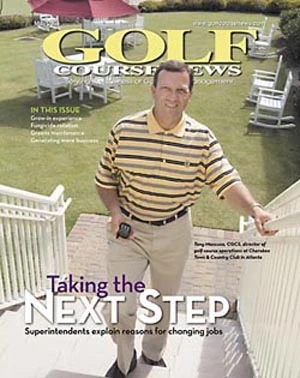
Explore the May 2005 Issue
Check out more from this issue and find your next story to read.
Latest from Golf Course Industry
- The Aquatrols Company adds former superintendent to its R&D team
- Heritage Golf Group expands into Tennessee
- Making the grade — at or near grade
- PBI-Gordon receives local business honor
- Florida's Windsor takes environmental step
- GCSAA names Grassroots Ambassador Leadership Award winners
- Turf & Soil Diagnostics promotes Duane Otto to president
- Reel Turf Techs: Ben Herberger
